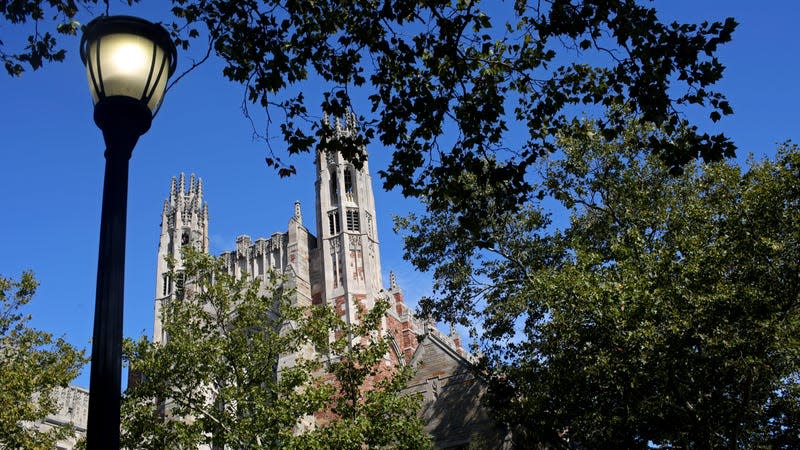America’s most prestigious law schools are rejecting the 30-year-old ranking system that lists them at the top

The 2023 US News & World Report law school ranking puts Yale in the first spot and Harvard fourth. But the two institutions are no longer interested in the list, and have denounced the system.
Yale Law School, which has bagged the top spot every year since the for-profit magazine US News & World Report started ranking law schools in 1990, does not use the position as “a lodestar to chart our course,” its dean Heather K Gerkin wrote in a statement yesterday (Nov. 16).
Read more
She called the ranking system “profoundly flawed,” adding that it disincentivizes programs that “support public interest careers, champion need-based aid, and welcome working-class students into the profession.”
Harvard Law School dean John Manning echoed the rival’s sentiments and said it will no longer participate.
The problem with US News & World Report law school rankings
“Done well, such rankings could convey accurate, relevant information about universities, colleges, and graduate and professional schools that may help students and families make informed choices about which schools best meet their needs. However, rankings can also emphasize characteristics that potentially mislead those who rely on them and can create perverse incentives that influence schools’ decisions in ways that undercut student choice and harm the interests of potential students.” —Harvard Law School dean John Manning
A flawed criteria to rank law schools
US News ranks law schools based on data collected across several categories:
Quality assessment, which includes views from faculty inside schools as well legal professionals outside
Placement success, including post-graduation employment and debt assessments
Selectivity, which looks at high school grades and admission tests
Faculty, Law School and Library Resources, including infrastructure spending and student-teacher ratio
Both Yale and Harvard, who say they have engaged with US News over several years to refine its metrics, poked big holes in these criteria.
💰 Debt can be distorted. A school could lower debt at graduation through generous financial aid, but it could also do so by admitting more students who have the resources to avoid borrowing—and there’s no way to tell which is which. So why wouldn’t they do the latter? “A far better measure is how much financial aid a law school provides to its students, rewarding schools that admit students from low-income backgrounds and support them along the way,” Yale’s Gerken suggests.
📝 Grades are overrated—and unfair. At 20%, heavily weighting students’ test scores and college grades have incentivized law schools to direct more financial aid towards high-scoring applicants without regard for financial need, the two law schools with among the biggest endowment funds said.
🤲 Public service is penalized. The debt metric discounts school-funded loan forgiveness programs, which assist students who pursue lower paying jobs in the public interest with the intent to build careers there. Meanwhile, the employment metric negates professional positions held by those who receive public interest fellowships funded by their home schools and devalues those pursuing advanced degrees, essentially categorizing them as unemployed.
The “Fake it till you make it” mentality in college ranking
The US News rankings largely rely on self-reported data, which makes them prone to manipulation—a temptation some universities can’t resist when they know how keenly students follow these lists.
Last year, a Temple University dean was found guilty of faking data from 2014 to 2018 to boost rankings.
Earlier this year, Columbia University was found guilty of fudging its data on the way to claiming the second spot in the overall US News ranking. “[T]here is reason for concern that its ascendancy may largely be founded, not on an authentic presentation of the university’s strengths, but on a web of illusions,” Michael Thaddeus, a mathematics professor, that exposed discrepancies in Columbia’s figures, wrote. The Ivy League school was dropped down to No. 18, and decided to sit out next year’s rankings.
How can students pick colleges without college rankings?
Broad-based hierarchical rankings like US News can be damaging to students deciding where to pursue higher education, whether or not they’re manipulated, as they offer a one-size-fits-all solution to a problem with infinite nuances. A better option may be to use non-linear rankings like the Carnegie Classification and government websites like College Navigator and College Scorecard, which compare specific aspects of specific schools.
Related stories
🏅 How US college’s rankings have—and haven’t—changed over the past century
💸 The world’s largest academic endowment fund lost money for the first time in six years
🙅🏽♀️ Harvard is the first Ivy League university to recognise caste-based discrimination
More from Quartz
Sign up for Quartz's Newsletter. For the latest news, Facebook, Twitter and Instagram.


